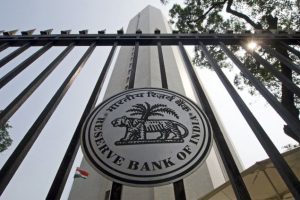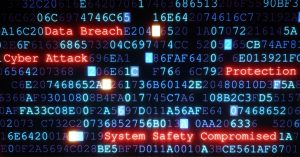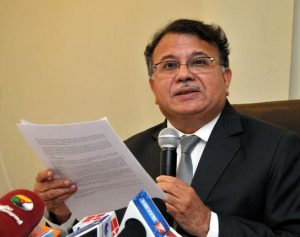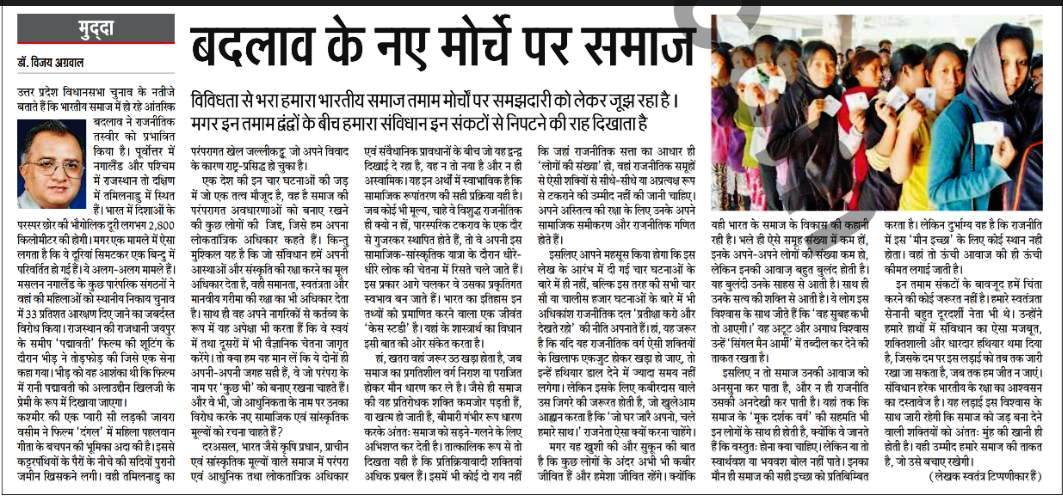
08-05-2017 (Important News Clippings)
To Download Click Here.
A first step
Ordinance empowering RBI to direct banks to resolve bad loans should end current paralysis

The ordinance gives RBI powers to unilaterally direct banks to resolve bad loan problems. Additionally, government can authorise RBI to initiate insolvency proceedings against defaulters under the new bankruptcy law. On Friday evening, RBI exercised powers granted by the ordinance to reform existing processes for resolution of bad loans. It is an important first step as these mechanisms are functional and can produce results if flaws are ironed out. It may seem underwhelming in relation to expectations. But it won’t be the only step.
As finance minister Arun Jaitley pointed out if some of the largest stressed asset cases are resolved, it will create space for banks to step up lending. On the other side, this step may salvage some economic value in troubled companies. The primary aim of the first step should be to end the current state of paralysis on account of coordination problems among bankers and their fear of witch hunting by enforcement agencies trying to discern motives in a commercial decision. In this context, it is important to keep in mind the ordinance is not a full solution.
That requires other changes, including amendments to the legislation which aims to prevent corruption so that good-faith decisions without proven quid pro quo are not penalised. Government is also keen to link the next round of capitalisation of public sector banks to governance reforms. The ideal reform will be for government to give up ownership of banks as repeated bad loan crises have exposed inherent flaws of state control. This ordinance should be seen as a short term measure as RBI, the banking regulator, needs to quickly distance itself from operational decision making of banks.
Date:08-05-17
Big Brother? 100 Small Brothers are watching you

Proponents of Aadhaar sneer that the activists are anti-technology Luddites, who unwittingly aid tax evaders and other crooks. These crooks can be caught by making Aadhaar mandatory for several purposes, producing data that helps catch the guilty.
However, this debate is irrelevant for the biggest privacy issue, which has nothing to do with Aadhaar. Privacy has mostly disappeared already with computers and cellphones being penetrated by hackers. Any misuse of Aadhaar pales in comparison with the misuse of viruses sitting on your computer or cellphone, watching all you say or write, and analysing this into behaviour patterns that even you may not realise.The main threat to privacy does not come from giving access to your fingerprints and iris photos to the government. Immigration officials in dozens of countries routinely take your fingerprints and iris photos when you enter their airports, and passengers do not mind since this obviously helps track undesirables.
A top cybersecurity expert estimates that every email and phone call is monitored by at least a hundred invisible entities, of whom 52% are private actors and 48% are state actors (of more than one country). The state has no monopoly on snooping. Rather, states themselves are hacked daily. Despite spending billions on cybersecurity, states are losing this war. Far from governmental Big Brothers becoming all powerful monopolists of information, they themselves are leaking data and secrets like a sieve to foreigners and non-state actors. Privacy has disappeared for governments as well as individuals.
Russian hackers helped Donald Trump win the US presidential election by hacking into the Democratic Party’s computers and releasing uncomfortable facts about Hillary Clinton. Hackers stole $101 million from the central bank of Bangladesh. In 2014, hackers called ‘Guardians of Peace’ leaked confidential data of Sony Pictures, including personal emails of employees and their families, copies of then-unreleased Sony films, and other information. The group demanded that Sony abandon its comedy film on a plot to assassinate North Korean leader Kim Jung-Un. Other hackers have stolen huge sums. Corporations buy leaked data for commercial gain. Criminals use leaked data for blackmail, theft, kidnapping and murder.
Countries and corporations with the most powerful anti-hacking systems have failed to protect themselves. What hope, then, is there for individuals?The cybersecurity expert says that 70% of websites worldwide are compromised. Daily checks are no defence: it can take 240 days for experts to detect a hack. Viruses are growing by 66% per year, some aiming to watch and record, others aiming to destroy systems. They can see every financial transaction, every compromising revelation in emails and phone calls, every movement of you and your family.
Cyberspace is a global commons that defies regulation. Anybody can enter it and penetrate systems globally. Not all hackers are criminals or corporations seeking commercial data: some seek to do good by exposing facts (like WikiLeaks).Through history, states have been powerful and individuals powerless. States were therefore the main threats to civil liberties and privacy. But increasingly non-state actors (notably ISIS and the Taliban) can threaten and overwhelm states. Tax evaders, money launderers and drug traffickers remain untouched by the most powerful states.Civil rights activists say little or nothing to the threat to privacy from private actors. Yet these threaten both privacy and security, and governments need additional powers to deal with hackers as well as criminals. Data mining is a powerful tool that helps governments detect tax evaders, blackmailers, terrorists, and other undesirables who escape the traditional police system. Governments must beef up cybersecurity, for itself and citizens. Making Aadhaar leakproof is only a small part of that.
India needs a Privacy Act, not just to check excesses in government snooping but to guard against private snooping. When civil rights are being breached massively by undesirable private actors of all sorts, to focus on government misuse alone — as activists are doing — is myopic.
Date:08-05-17
‘Court appears to be engaging in unrestrained judicial overreach … uncertainty around policy because of SC interventions’

Is SC’s role in co-governing India consistent with Constitution’s spirit?
In the 1980s, after the Emergency, judiciary transformed itself into an institution that was enjoined to promote the ideals of socio-economic and political justice.
Judiciary developed public interest litigation, or PILs, as a jurisdiction to transform constitutional promises into reality, and open the doors to those groups of people who were not free to approach the courts due to socio-economic factors. The idea was to make human rights meaningful for weaker sections of society. Then it gradually recognised rights of undertrials, juveniles, right to privacy, right to speedy trials and so on. It also covered areas like environment. This is how the idea of PILs began and started expanding. Article 21 was expanded as well, recognising right to education, work, shelter and so on. It was undeniably a glorious chapter in history of Indian judiciary.
Lately, however, the court has taken on a role of co-governance. Indeed, I fear that it has become the norm almost. The court, through its decisions, is virtually overriding the constitutional concept of separation of powers. There are judicial diktats on every other subject, many of which are rank populist decisions, for example, the decision in the BCCI matter, where the court is practically running the cricket board on a day to day basis. Besides this, the court also entertains completely frivolous matters like the national anthem case, or the one on Sikh jokes.In sum, the court appears to be engaging in unrestrained judicial overreach, mostly by recourse to Article 142, and issuing judicial diktats.Populist approach would destroy the idea of PIL as envisaged originally decades ago. SC is trying to govern the country, and trying to correct every ill that exists. But this is neither within the powers of the court, nor does it have the capacity to do so. The priority must be protection of human rights and fundamental rights.
Does the recent record suggest that evidentiary basis for judgments is satisfactory, particularly if the outcome has a significant fallout?
The alcohol ban is a case in point where the court’s decision has had catastrophic financial consequences. In effect, the court drastically altered the central government’s policy without realising the implications. I believe this is in the range of anything between Rs 50,000-75,000 crore, and has led to the loss of a million jobs. SC has missed the target on this one. There should have been decisive steps taken against drunken driving. The decision may be well intentioned, but it has effectively gone against the thriving hospitality industry.As a result, there is also a lot of uncertainty around policy, because of the interventions of SC. Such decisions have serious financial repercussions, which, I fear, the court is not equipped to understand.
Taking a look at Aadhaar case, is SC’s scheduling of hearings contributing in a roundabout way to a roll-out of policy?
There are very serious issues involved in the petition before SC, including whether the Aadhaar Act could have been passed as a money bill.It is useful to recap what happened. The case came before a three-judge bench in August 2015. The court granted interim relief restricting the use of Aadhaar to two schemes on a voluntary basis. When it went to a five-judge bench in October 2015, the two schemes were expanded to six schemes. On both occasions, the court said it was an important issue and should be heard expeditiously.
In spite of that observation, the matter is not being given priority. In the meantime, the central government started issuing notification upon notification making Aadhaar mandatory for various purposes, in disregard of the interim order. Surprisingly, the Chief Justice of India has made an observation that the non-mandatory nature of Aadhaar extends only to social welfare and benefit schemes, and that it did not apply to other things like verification of income tax returns or registration of mobile numbers. This is completely at odds with the interim order passed by the constitution bench.Somewhere, priorities are getting lost, and the court is wasting its time in trying to address policy issues, which are clearly not in its domain. This becomes all the more critical when we realise that pendency in SC has crossed 60,000 cases.
Melting Arctic ice: Call to climate action
The Arctic Sea ice is thawing at a rapid pace — over the past three decades, the area of sea ice in the Arctic has fallen by more than half. A recent report estimates that the Arctic will be free of sea ice by 2040, much before an earlier estimate of 2070. Apart from gearing up for effects such as an increase in extreme weather incidents and rising sea levels, countries, including India, must reinforce their commitment to a lower carbon economy.
Melting of the Arctic ice has a direct correlation with the rising incidence of droughts, floods and heatwaves. The warming Arctic affects ocean currents and winds, with follow-on effects across the world, including on the Monsoon. This impacts cropping patterns and food production, and exacerbate water stresses. The quickened pace of sea ice melt will mean rising sea levels that will pose a danger to coastal cities, including Mumbai . As permafrost thaws, dormant viruses and bacteria could resurface to pose new public health challenges. The melting of the Arctic sea ice has been an issue of concern for scientists and environmentalists for long, now it must concern the larger community. Growth will have to produce less carbon dioxide, which warms the planet, than at present.The climate change commitments made at Paris are far from adequate to meet the goal of restricting global temperature rise to well below 2° Celsius. Countries, sub-national entities like cities, and businesses all need to step up their efforts. This is not the time for countries to step back or make a downward adjustment to their commitment to take measures that would slow down global warming. The cost of not stepping up efforts is immense; one that the poorest who will be the worst affected can least afford.
आरबीआई के पाले में
देश के बैंकिंग क्षेत्र की फंसे हुए कर्ज की समस्या को लेकर आया नया नियमन ही मौजूदा परिस्थितियों में सबसे बेहतर हल साबित हो सकता है। बैंकिंग नियमन अधिनियम में संशोधन का अध्यादेश भारतीय रिजर्व बैंक (आरबीआई) को अधिकार देता है कि वह बैंकों को देनदारी चूकने वाली कंपनियों को दिवालिया करने की प्रक्रिया शुरू करने को कह सके। आरबीआई फंसे कर्ज पर निर्णय भी ले सकता है। फंसे हुए कर्ज की समस्या का आकार सात लाख करोड़ रुपये का है और अगर पुनर्गठित परिसंपत्ति को जोड़ दिया जाए तो यह राशि 10 लाख करोड़ रुपये हो जाएगी। इसमें अधिकंाश हिस्सा सरकारी बैंकों का है। फंसे हुए कर्ज से निपटने के अलावा बैंकिंग नियामक एक निगरानी समिति बनाएगा जो बैंकों और संयुक्त ऋणदाता मंचों को फंसे हुए कर्ज से निपटने का तरीका बताएगा।




